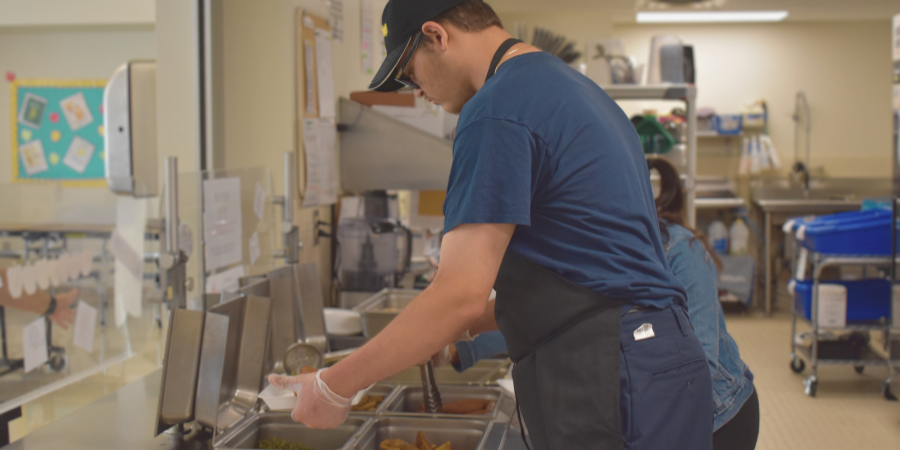Students at the Watson Institute begin preparing for adulthood early. Officially, transition curriculum starts at age 14, but activities and projects that help students develop the skills to succeed after graduation are integrated into daily activities and classroom practices regardless of a student’s age.
At Watson’s Sewickley campus, the Cupples Center houses classrooms intended for students closer to graduation age, between 16-21 years old. Classrooms are structured with various centers that support greater independence and help students build their pre-vocational skills.
Students engage in community-based activities and work efforts to build skills that will help them find employment after graduation. One Cupples student, Luke, is getting a head start on his efforts!
Luke has been a student at the Watson Institute for several years, previously enrolled in the WISCA autism school program until he transferred into the Education Center Sewickley program.
Since he is only a few years away from graduation, Luke’s classroom is in the Cupples Center. In Luke’s words, he “recommends the Cupples Center without a doubt! I love my staff. They support me and encourage me to do good things!”
As a Cupples student, Luke participates in Community-Based Instruction, a special education transition service program in which students go to local business partners to complete vocational tasks and learn from area professionals.
Luke’s favorite CBI partner is a local hotel where he has the opportunity to fold towels and sheets and learn about room cleaning and the scope of tasks managed by the housekeeping crew. These community-based experiences offer students a glimpse into the necessary skills and responsibilities of various employment positions.
Balancing Vocational Pursuits with Academic
Last school year, Luke was encouraged by his classroom staff to apply for an open Nutrition Aide position at Watson. Now, Luke works part-time, three days a week, balancing this important vocational pursuit with his academic work!
As a Nutrition Aide, Luke helps the Nutrition team prepare food for student lunches, refills condiments, restocks silverware, trays, and napkins, and when the lunch rush starts, you can find Luke on the line serving his peers and other Education Center and WISCA program staff!
In order to take on the Nutrition Aide position, Luke had to obtain his SafeServ certification. His classroom and transition staff helped him study for the online exam in the weeks leading up to it. In order to pass the certification, Luke had to learn about safe food handling, proper hygiene, and temperatures for food.
Visual aids and labels are placed throughout the kitchen and serve as great sources of support and reinforcement! The Nutrition team at Sewickley uses visual temperature guides for food products, weekly cleaning schedules, and daily food preparation reminders to keep the kitchen operating smoothly and safely.
Luke aims to get a job in the food service industry after he graduates from Watson, so the Nutrition Aide position offers him excellent work experience and vocational training that will serve him in his vocational pursuits!
Learn more about the Watson Institute’s special education transition services which help prepare students with disabilities for adulthood!
